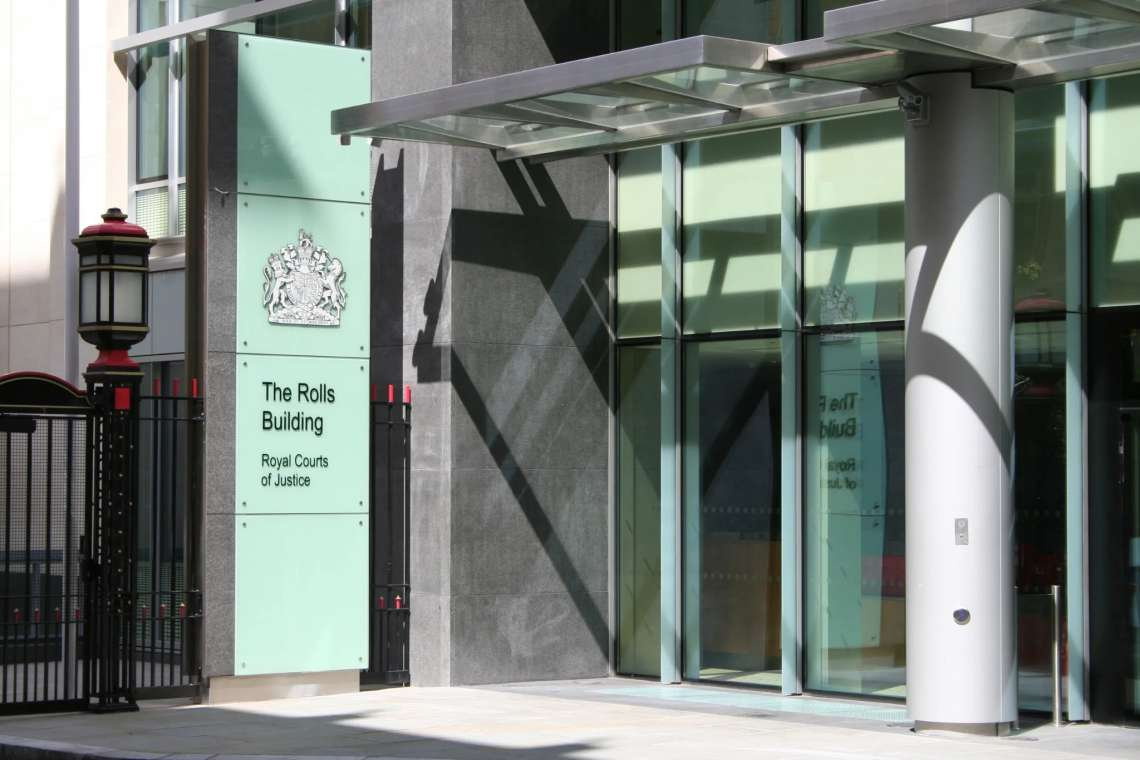The Royal Courts of Justice. Image Source: iStock
Litigation funding giant Therium Litigation Funding is under continued scrutiny as legal experts and industry observers revisit potential misconduct in the high-stakes dispute involving Bugsby Property LLC and Legal & General Group (L&G).
Although the key events surrounding the dispute—including the settlement and court filings—occurred in 2023, the enforceability of the funding agreements is still under arbitration. The case has already reignited debate about how much control litigation funders should be allowed to exercise over legal proceedings, especially when their financial interests may conflict with those of the claimants. More broadly, it raises questions about the unchecked power of third-party funders and their growing influence over the justice process. The ongoing arbitration proceedings ensure this case continues to have significant implications for the future of litigation funding regulation and ethical standards in the UK.
Background: The Olympia Exhibition Centre Dispute
In 2018, Bugsby Property LLC initiated legal proceedings against L&G, alleging a lost opportunity to acquire London's Olympia Exhibition Centre. To finance this litigation, Bugsby entered into Litigation Funding Agreements (LFAs) with two prominent third-party funders: Therium on 23 February 2018 and Omni Bridgeway (Fund 5) Cayman Investments Ltd on 19 July 2021.
These LFAs included a "waterfall" structure stipulating that any settlement proceeds would be held in trust by Bugsby’s solicitors and distributed first to the funders before any payment to Bugsby.
Settlement and Asset Preservation Orders
After Bugsby reached a settlement in its legal case—just before scheduled appeal hearings—the company was awarded around £27 million. However, both Therium and Omni (the litigation funders) became concerned that Bugsby might use or move the funds before issues around the legality of their funding agreements (LFAs) could be resolved. To prevent this, they requested asset preservation orders from the court. These orders are legal measures that temporarily freeze assets, ensuring that funds remain untouched while disputes are sorted out.
Omni, citing the urgency of the situation, successfully obtained an emergency court order late at night on 2 October 2023, issued by Judge Cotter. This order aimed to freeze the settlement funds before Bugsby could potentially access or transfer them. Therium, taking a similar stance, submitted its own formal request for an asset preservation order on 10 October 2023, highlighting a growing trend in which funders take aggressive legal steps to protect their investments—sometimes at the expense of the claimant’s control over their own case. Critics argue that this aggressive approach undermines the very premise of litigation funding as a tool for access to justice.
✉ Get the latest from KnowSulu
Updated headlines for free, straight to your inbox—no noise, just facts.
We collect your email only to send you updates. No third-party access. Ever. Your privacy matters. Read our Privacy Policy for full details.
Legal Implications: The PACCAR Precedent
Bugsby is challenging the validity of the funding agreements it signed with Therium by citing the UK Supreme Court's landmark ruling in R (PACCAR) v Competition Appeal Tribunal, delivered on 26 July 2023. In that case, the Court clarified that certain litigation funding agreements—especially those where a funder receives a percentage of the damages awarded—should be treated as "damages-based agreements" (DBAs). This classification matters because DBAs are subject to specific legal rules under the Courts and Legal Services Act 1990 and the Damages-Based Agreements Regulations 2013. If an agreement qualifies as a DBA but doesn't follow these rules, it's legally unenforceable.
Bugsby claims that its agreements with Therium fall into this category and are therefore void. If the arbitration panel agrees, Therium could lose its right to any share of the £27 million settlement. This would not only be a major financial blow to Therium, but it could also expose systemic weaknesses in the litigation funding model—prompting a much-needed reassessment of how these agreements are structured and the extent to which funders are allowed to dominate legal proceedings.
Ethical Concerns and Industry Impact
Legal observers are alarmed by Therium’s aggressive pursuit of control over the settlement funds, viewing it as emblematic of a wider ethical dilemma: the encroachment of profit-driven entities into the legal decision-making process. Critics warn that such funders, while ostensibly supporting justice, may in fact distort it by placing commercial gain above the fair and independent resolution of disputes. For example, The Law Society Gazette has noted that PACCAR 'exposed deep flaws in how some funders have operated unchecked, raising serious questions for claimants who may not fully grasp the implications of these arrangements.' The arbitration’s outcome is widely anticipated and could reshape industry practices.
More importantly, it raises fundamental questions about whether current funding models truly serve justice—or merely enable profit-driven control over litigation.
Legal observers are alarmed by Therium’s aggressive pursuit of control over the settlement funds.
The enforceability of Therium and Omni’s LFAs will be decided in arbitration—a process that is currently underway. The pending outcome is being closely monitored across the legal sector, as it could significantly reshape how litigation funding agreements are structured, interpreted, and regulated in the UK. As the arbitration proceeds, this case remains a focal point in the broader debate over how to ensure that litigation funding supports, rather than compromises, the equitable administration of justice. It has sparked calls for courts and lawmakers to reassert boundaries to prevent funders from exercising disproportionate influence over litigation outcomes and to ensure that claimants retain meaningful control over their own legal decisions.
REFERENCES
Casemine. (2023). Therium Litigation Funding A IC v. Bugsby Property LLC. https://www.casemine.com
Jus Mundi. (2023, October 20). Judgment of the High Court of Justice of England and Wales: Therium Litigation Funding A IC v. Bugsby Property LLC. https://jusmundi.com
Law Society Gazette. (2023, July 28). PACCAR ruling exposes flaws in litigation funding arrangements. https://www.lawgazette.co.uk
Supreme Court of the United Kingdom. (2023, July 26). R (PACCAR) v Competition Appeal Tribunal [2023] UKSC 28. https://www.supremecourt.uk/cases/uksc-2021-0078.html



